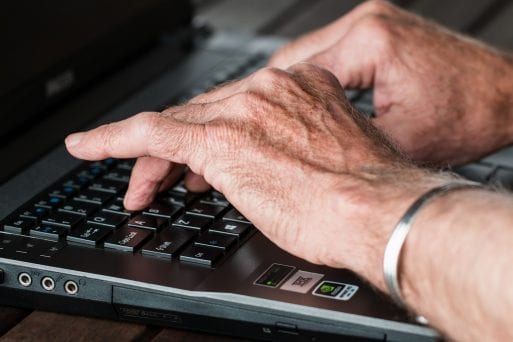
There are always bad actors ready to take advantage of others during times of disruption and uncertainty, and COVID-19 has proved no different. This is especially true when it comes to senior citizens and the elderly, who are already vulnerable targets for scams. Some of the biggest COVID-19 scam and fraud opportunities revolve around stimulus checks, medicine and testing, charities, and investments.
Tips to Avoid COVID-19 Scams
When it comes to COVID-19 scams, the most common ones revolve around government aid and the stimulus checks that were part of the $2 trillion federal stimulus plan. One of the most common techniques used by scammers is to contact an individual, either by phone or other means, to tell them they need their social security number or banking information in order to process the aid. Many false websites also pose as official government sites in order to collect information. It is important to always follow the guidelines on the official IRS website. Federal officials will never request money in exchange for aid or ask for social security numbers, banking information, and/or credit card numbers over the phone.
Another major area that scammers are targeting is healthcare. At this time, there is no cure or vaccination against COVID-19, but scammers will try to convince you otherwise. Never trust someone trying to sell a “proven” cure, vaccination, or medicine, by phone or other means, and never provide personal information to someone advertising “coronavirus test kits.” Instead, follow the guidelines put forth by the Food & Drug Administration and the Centers for Disease Control and Prevention, which provide information you can trust.

Scammers are also looking to take advantage of individuals who are looking to donate to charities or volunteer efforts. Many false organizations will claim to be raising money for those in need or for medical supplies, but in reality are taking the money for themselves. Make sure to research any organization you are considering donating to. If possible, go with those you’re already familiar with, or verify the charity through Give.org or Guidestar.
False investment opportunities are another major area of COVID-19 scams that specifically target elderly individuals. Scammers will attempt to persuade people to purchase false medical technology or bad stocks. Some are even offering stock in companies they claim will develop a cure or vaccine. In order to avoid this, always do your research when investing and verify listings with the New York Stock Exchange or Nasdaq.
By recognizing the most common signs of scams, you can protect yourself from the various techniques used by these bad actors. Heightened awareness is the best solution to preventing further suffering.

 COVID-19 Scams Target Vulnerable Senior Populations
COVID-19 Scams Target Vulnerable Senior Populations


 How Dare You Die Now!
How Dare You Die Now!

 “Help Me, Helen”
“Help Me, Helen”














